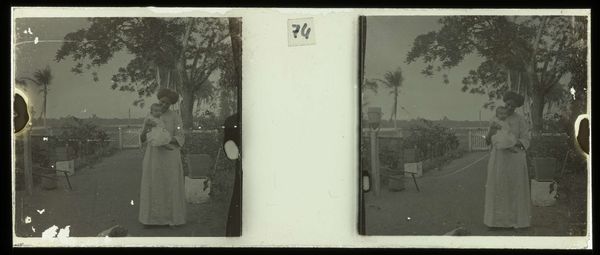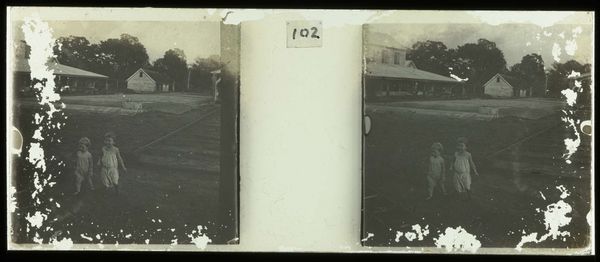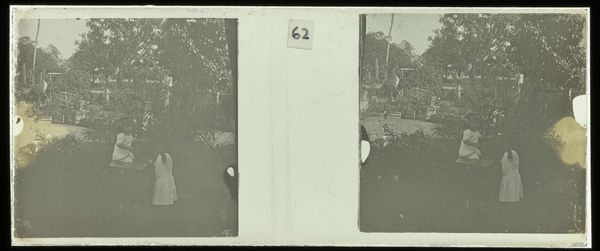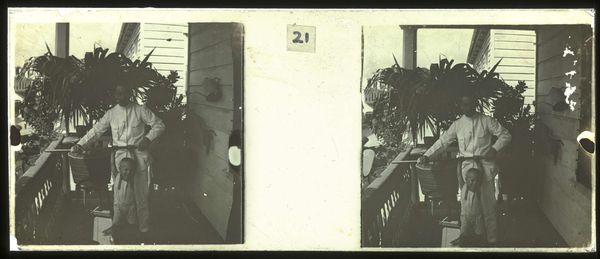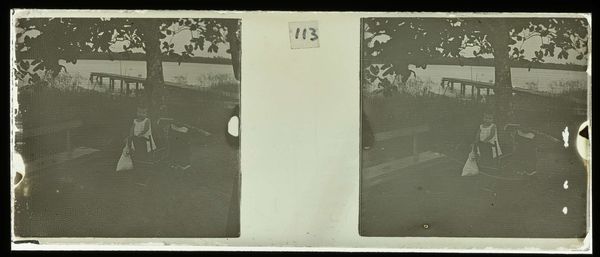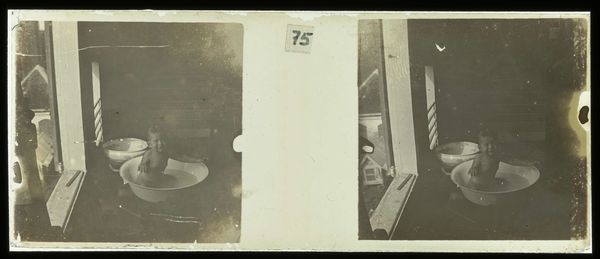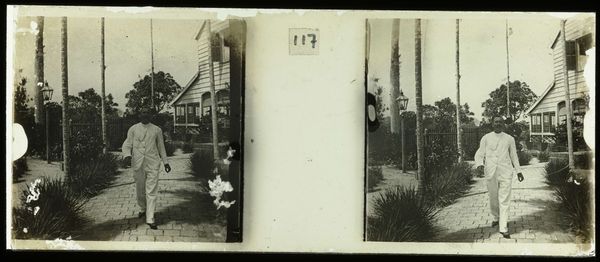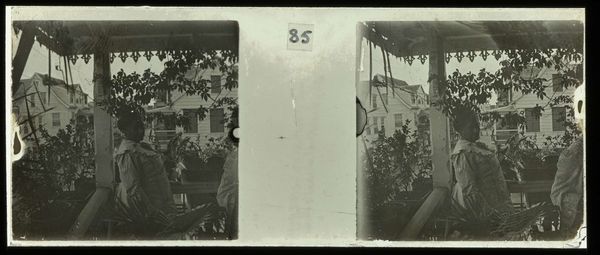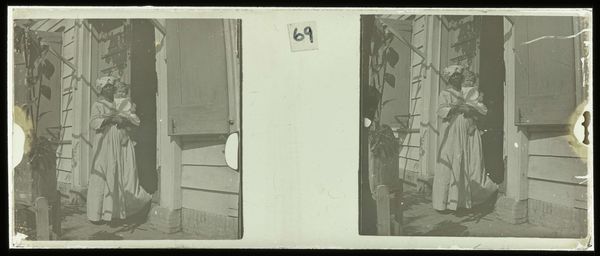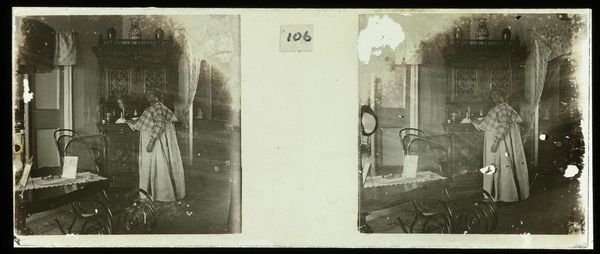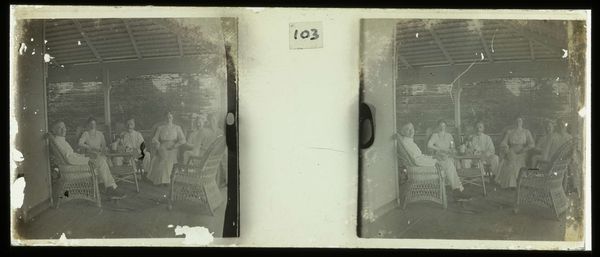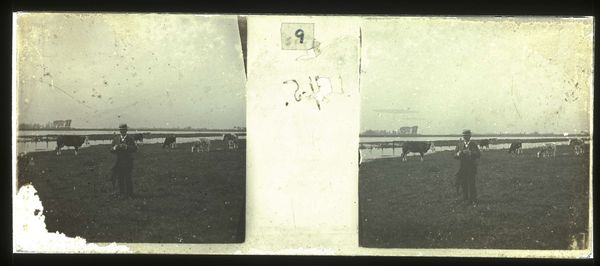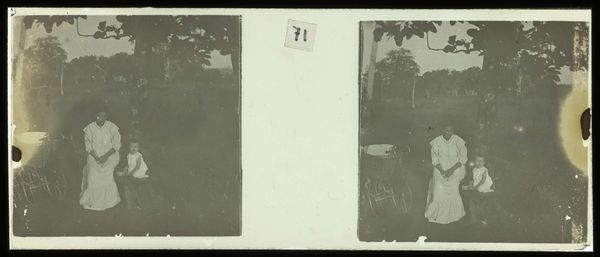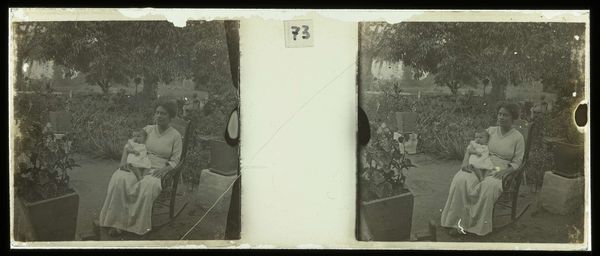
Lize Brouwers, echtgenote van Theodoor Brouwers, met haar zoon Gerard en een Javaanse bediende in Paramaribo 1913 - 1930
0:00
0:00
theodoorbrouwers
Rijksmuseum
photography
#
portrait
#
photography
#
postcolonial-art
#
cityscape
Dimensions: height 4.5 cm, width 10.5 cm
Copyright: Rijks Museum: Open Domain
This undated stereo photograph by Theodoor Brouwers depicts his wife Lize, their son Gerard, and a Javanese domestic worker in Paramaribo. The image’s visual codes provide a glimpse into the social hierarchy of early 20th-century Suriname, then a Dutch colony. The photograph stages a clear distinction between the European family and the Javanese nanny, reflecting the racial and class divisions inherent in the colonial structure. The presence of a Javanese domestic worker underscores the reliance of Dutch colonizers on indentured labor from Java, a practice that replaced slavery but maintained a system of exploitation. What is particularly interesting is that these photographs were meant to be viewed in 3D, implying that the colonial experience itself was something spectacular for the European viewer. Further research into the lives of Dutch families in Suriname, as well as the experiences of Javanese workers, could shed more light on the complex social dynamics captured in this photograph. By examining these visual and social histories, we can better understand the power dynamics at play in colonial Suriname and the ways in which art both reflects and reinforces those structures.
Comments
No comments
Be the first to comment and join the conversation on the ultimate creative platform.
